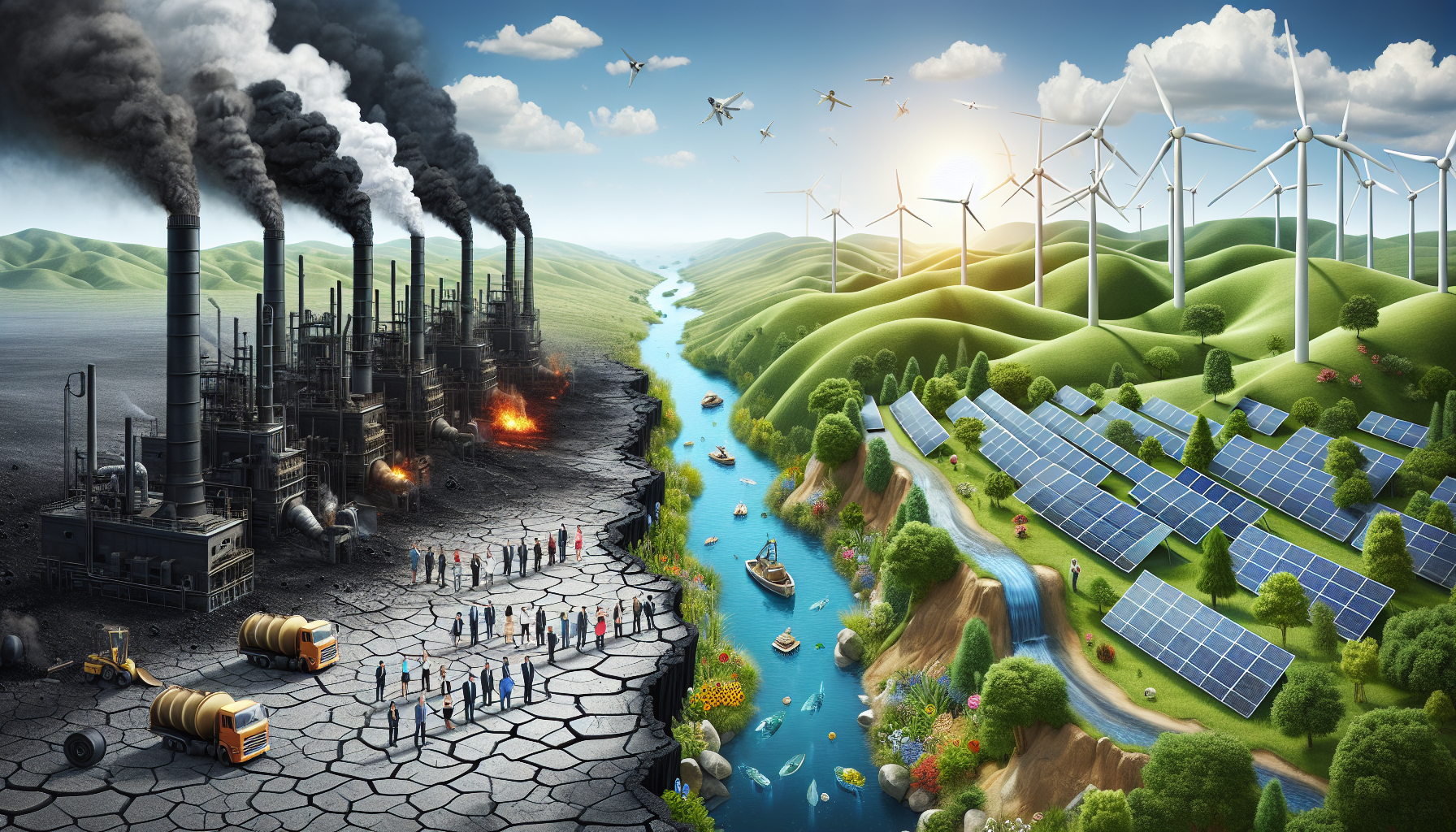The Energy Crisis: Understanding the Global Challenge and Its Implications for Our Future
As the world grapples with unprecedented challenges, the urgency of the energy crisis is more pronounced than ever. This crucial issue transcends national borders, affecting economies, societies, and the environment. In this post, we'll dive deep into the nuances of the energy crisis, examine its causes and implications, and explore potential solutions to combat this ongoing dilemma.
H2: What is the Energy Crisis?
An energy crisis refers to a situation where the demand for energy surpasses its supply, leading to a wide range of economic and social problems. This imbalance can be influenced by factors such as geopolitical tensions, natural disasters, depletion of resources, and changing consumption patterns. The consequences are dire: soaring energy prices, economic instability, and increased greenhouse gas emissions.
H3: Historical Context of Energy Crises
Energy crises are not a new phenomenon. The 1973 oil crisis serves as a poignant reminder of how geopolitical factors can abruptly alter energy supplies. OPEC's decision to cut oil production led to skyrocketing oil prices and substantial economic fallout across the globe. Fast forward to today, we’re still facing energy supply challenges, albeit under different circumstances—climate change and the transition to renewable energy sources are at the forefront.
H2: Causes of the Current Energy Crisis
H3: 1. Geopolitical Turmoil
Perhaps one of the most significant contributors to the current energy crisis is geopolitical instability. Conflicts in oil-rich regions and trade wars have led to uncertainty in energy supplies, causing markets to react swiftly with price surges. For instance, recent tensions in Eastern Europe have resulted in soaring natural gas prices, impacting economies worldwide.
H3: 2. Rapid Economic Recovery Post-Pandemic
As countries emerge from the COVID-19 pandemic, energy demand has rebounded sharply. According to the International Energy Agency (IEA), global energy demand increased by 6% in 2021, the highest growth rate since 2010. However, supply chains have struggled to keep pace, leading to shortages and rising costs.
H3: 3. Transition to Renewable Energy
The global shift to renewable energy sources is often touted as a solution to combat climate change. However, the transition has its challenges. The reliance on intermittent resources like solar and wind can lead to vulnerabilities in energy security, especially when fossil fuel prices remain competitive.
H2: Implications of the Energy Crisis
H3: Economic Repercussions
The implications of the energy crisis are widespread, affecting everything from household budgets to large corporations. Increased energy costs can lead to inflation, reducing consumer spending and economic growth. For example, businesses reliant on heating or transportation have faced drastic increases in operational costs, leading to layoffs and reduced investments.
H3: Environmental Concerns
The urgency of the energy crisis is compounded by environmental challenges. Reliance on fossil fuels leads to higher emissions, exacerbating climate change. Furthermore, climate change can, in turn, lead to further energy supply disruptions—such as extreme weather events affecting production and distribution networks.
H2: Potential Solutions to Mitigate the Energy Crisis
H3: 1. Diversifying Energy Sources
Countries should diversify their energy portfolios to reduce dependency on any single source. Investing in a mix of renewables, nuclear, and conventional energy can enhance energy security while transitioning to a more sustainable future.
H3: 2. Enhancing Energy Efficiency
Improving energy efficiency in industrial, commercial, and residential sectors can significantly reduce overall energy demand. Technologies that promote energy-saving practices can alleviate stress on the energy grid without compromising consumer needs.
H3: 3. Policy and Regulation
Governments can adopt policies encouraging investments in renewable energy infrastructure while phasing out fossil fuels. Compatible regulations can create healthier markets and stimulate innovation in green technologies.
Conclusion: Our Responsibility in the Energy Crisis
The energy crisis is a complex, multifaceted challenge that requires collaborative efforts from governments, businesses, and consumers alike. As we navigate through this unprecedented time, our collective responsibility becomes crucial in finding sustainable solutions for future generations. By understanding the intricacies of the energy crisis, we can take informed actions to safeguard our planet and ensure a stable energy future.
Call to Action
What are your thoughts on the energy crisis? How do you think we can best address this challenge? Share your insights in the comments below!
Tags: #EnergyCrisis #SustainableEnergy #ClimateChange #RenewableEnergy #EconomicImpact
Categories: Energy, Environment, Economics, Policy

답글 남기기